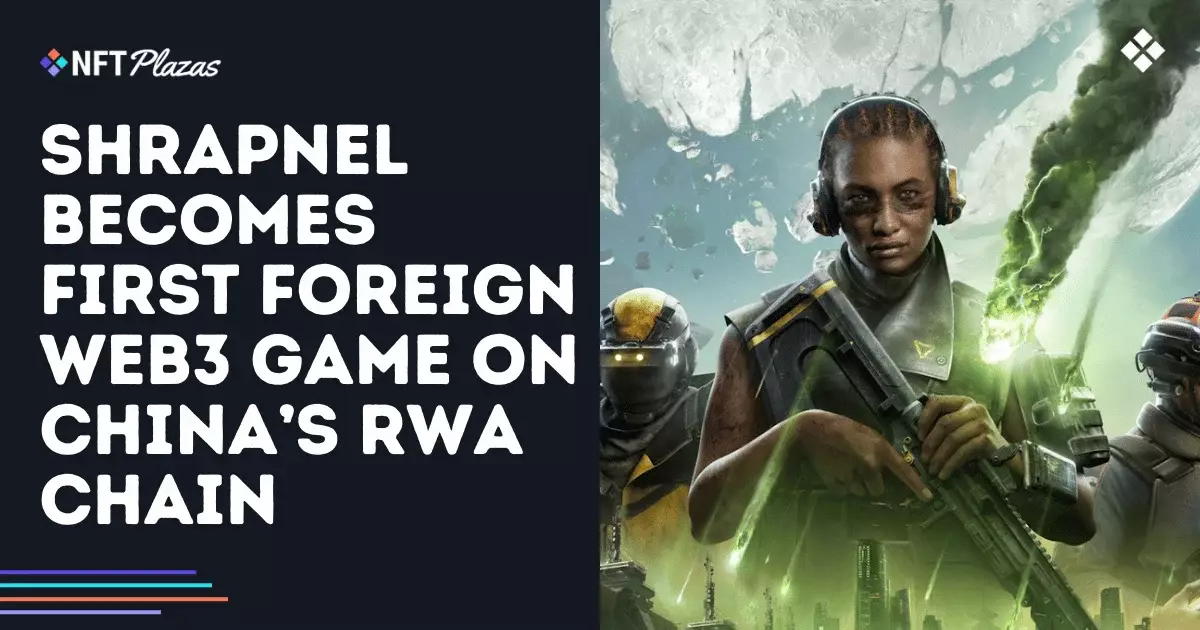The recent approval of Shrapnel, a web3 video game developed in the US, to operate under China’s RWA Copyright Chain marks a pivotal moment in the evolution of blockchain gaming. Not only does this make Shrapnel the first foreign title to gain such recognition in China—the world’s second-largest video game market, valued at over $40 billion—but it also serves as a bellwether for the capabilities of blockchain in regulated economies. This endorsement signifies a shift away from strict regulatory constraints that have historically characterized China’s approach to digital assets, creating new paradigms for international gaming ventures.
The Power of Compliance
Shrapnel’s strategic move to obtain this license exemplifies the profound importance of adhering to local regulations. Aligning with China’s legal framework not only legitimizes the game but also sets a precedent for future foreign entrants into the Chinese market. Through partnerships with local organizations and compliance with Chinese laws, Shrapnel has carved out a pathway for others aiming to bring blockchain-based products to a market that has often maintained a fortress-like stance against foreign digital innovations. It highlights a unique opportunity—businesses that respect and adapt to local frameworks will thrive, while those that resist will be left at the gate.
Digital Property Rights and Player Empowerment
A noteworthy aspect of Shrapnel’s Chinese venture is the legal recognition of in-game assets as digital property. Under the regulatory support of the RWA Copyright Chain, players can buy, sell, and trade items with legitimacy—a significant evolution that empowers gamers and cultivates robust in-game economies. This shift fosters an environment where players are not merely consumers but also stakeholders in their digital experiences. The implications of this model extend beyond gaming, inviting discussions around ownership and monetization in other areas of digital interaction.
Local Adaptations, Global Aspirations
While Shrapnel aims to cater to the Chinese market, the necessity for localization reveals critical insights into balancing global ambitions with regional differences. The game’s Chinese iteration will differ from its international counterpart, suggesting that foreign companies must be adaptable and culturally sensitive to succeed in new territories. This adaptation may manifest in a local launcher or tailored content, demonstrating a commitment to understanding and engaging with the local gaming community.
The Role of State Collaboration
The partnership with Lingjing Game Labs, an arm of the People’s Daily newspaper, illustrates a pragmatic approach to navigating China’s unique marketplace. By aligning with state-affiliated entities, Shrapnel not only guarantees compliance but also garners credibility. However, it’s essential to question how such collaborations may influence creative freedom and long-term strategies. Although beneficial in the short run, this entanglement with state interests might stifle innovation, necessitating a careful balance between compliance and creative expression.
In summation, Shrapnel’s entry into China is a revelation of possibilities within the digital economy, showcasing how regulatory navigation can foster international collaboration. As we witness the ripple effects of this development, it prompts reflection on the future of digital asset management and the evolving landscape of blockchain technology globally.













